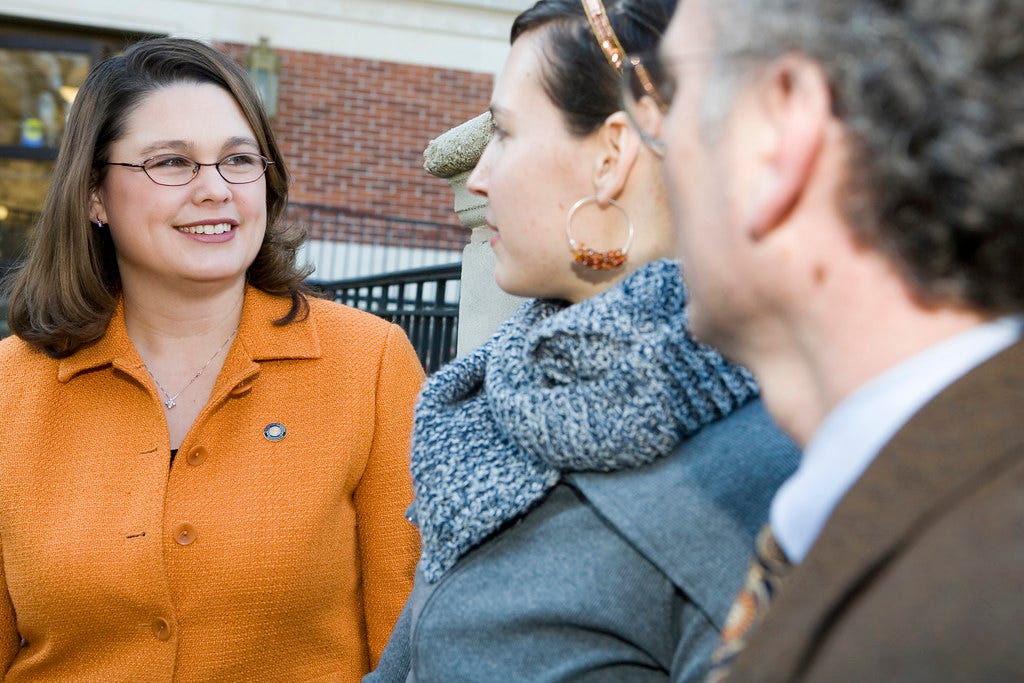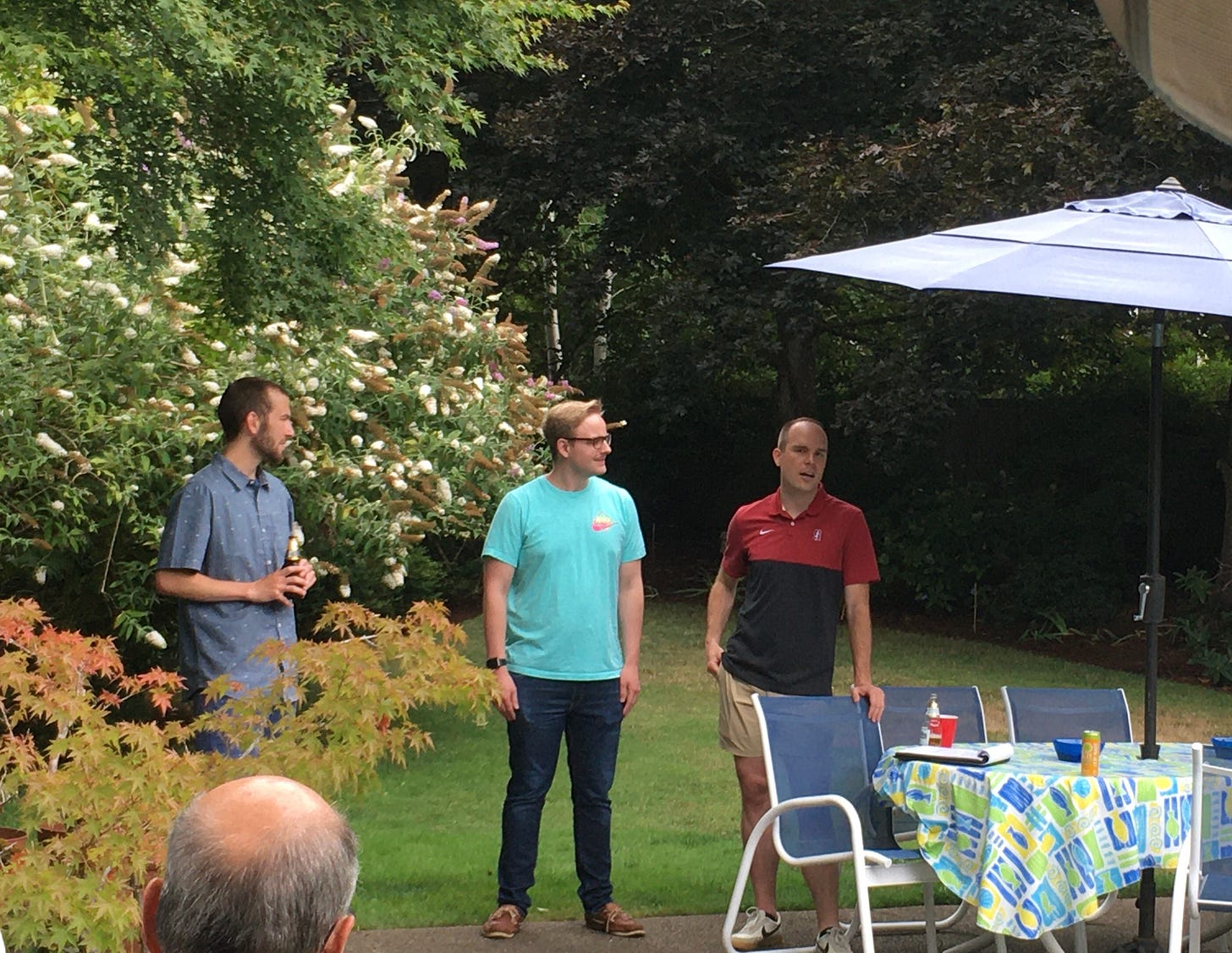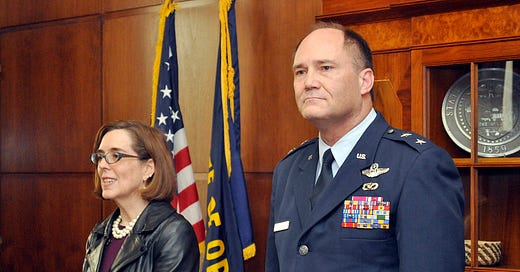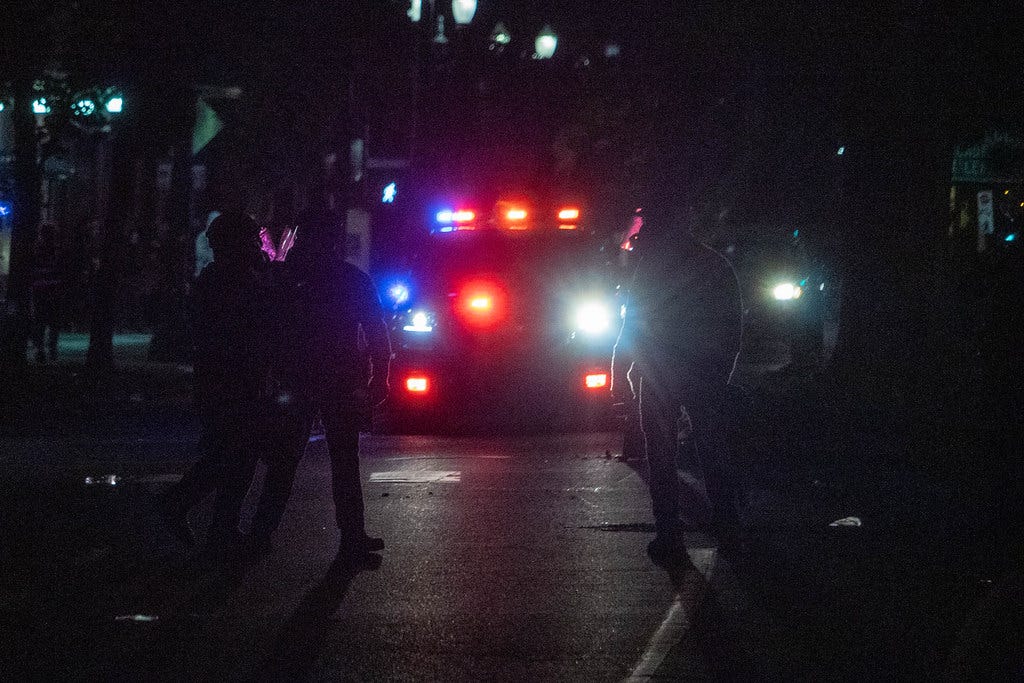The Liftoff: Underpaid state leaders and surprising campaign contributions
PLUS: What Dems and the GOP are talking about, political unrest across the state, a wild convo with Sen. Gelser, and a fun teaser of what's to come.
Welcome to another installment of The Liftoff! We are Oregon’s weekly newsletter with everything you need to know about state politics, government, campaigns, and elections.
If you support our work and want to be part of this community, please subscribe and help us grow!
There’s a lot to cover today, so let’s dive in.
1. Surprising salaries for state leaders
The Oregonian’s database of state government salaries has some fascinating data from the 2020 fiscal year. Here are some highlights (remember, The O calls this “total pay” as it is not necessarily the salary of the position held; also, benefits are not included):
Governor Kate Brown, the state’s highest ranking elected official, earns just $98,000
Treasurer Tobias Read made $92,710. Labor Commissioner Val Hoyle made $82,472. Previous Secretary of State Bev Clarno made $82,786.
Supreme Court Chief Justice Martha Walters made $161,689.
Brown’s former chief of staff (and current member of the Biden Administration) Nic Blosser made double the Gov’s salary at $202,761
Pat Allen, head of the OHA, made $216,779; Colt Gill, head of ODE, made $222,414. Fariborz Pakseresht, who leads DHS, made $215,548. Katy Coba, head of the massive Department of Administrative Services, earned $249,191.
State Epidemiologist (and sidekick to Governor Brown at many pandemic-related news conferences) Dean Sidelinger made $161,901
Oregon State Police Superintendent Travis Hampton earned $198,384 and Oregon Adjutant General (head of the Oregon National Guard) Michael Stencel earned $180,574
Former legislator Ben Cannon, who heads the Higher Education Coordinating Commission, made $203,142
Speaker Tina Kotek earned $75,257. Senate President Peter Courtney earned $73,298. Most legislators earned a little more than half of that.
The legislature’s top lawyer, Dexter Johnson, earned $214,132.
Not that you asked, but here’s my take: Public service should require sacrifice, but we’re asking for too much sacrifice from our elected leaders. They are woefully underpaid. The position of the Governor should earn at least double its current salary, and statewide elected officials should earn at least $150,000. The Speaker and Senate President should be paid more, too. We should create more incentives for talented, successful people to run for office and not have to make massive financial sacrifices. Even former legislators who have remained in government like Cannon, or Supreme Court Justice Chris Garrett, or director of the Department of State Lands Vicki Walker, would have to take ridiculous pay cuts to run for Governor. The pay gap is even worse for someone leaving the private sector. Not a smart system!
2. What Oregon Republicans are talking about
This segment is authored by co-host of The Oregon Bridge podcast and Trump Administration alum, Alex Titus.
Saying it's a bad time to be a Portland police officer is an understatement. Rose City has been rocked by racial justice protests, unrest, clashes between Antifa and the Proud Boys, and an accelerating spike in murders and gun violence. Now, the Portland Police Bureau can't even find applicants for their Gun Violence Prevention Team.
From Zusha Elinson in The Wall Street Journal: Portland Can’t Find Police for Unit to Fight Rising Murder Rate
Some alarming statistics around rising crime:
Portland is on track to exceed its highest homicide rate ever.
Portland may have over 1,000 shootings by the end of the year, according to KGW. Compare that to 389 shootings in 2019.
Paging Democratic Hopefuls: There's no question law and order will be a major issue for Republicans heading into 2022— and voters might just be ready to listen. Here's what two 2022 GOP hopefuls are saying:
Dr. Bud Pierce tells me: “It is naïve and dangerous to not realize that there is a criminal element in Portland, determined to intimidate and to harm Portland’s citizens, and to destroy public and private property. It is time for the good citizens of our great city to rise up, to take back our streets, and to work together with our brave women and men in law enforcement to hold every criminal fully accountable under our laws.”
Sandy Mayor Stan Pulliam tells me: “Portland progressives who have defunded the police and prosecutors who refuse to hold the unlawful accountable have allowed an arrogance of ideology to fill our community with drugs, filth, and violence. We need to support our police and replace activist prosecutors who keep releasing violent offenders without consequence.”
3. What Oregon Democrats are talking about
All politics is national: Rep. Wlnsvey Campos (D-Aloha) and Rep. Teresa Alonso Leon (D-Woodburn) headed to DC last week to join progressive legislators from across the country in calling for the passage of the “For the People Act” and the “John Lewis Voting Rights Act”, two elections bills. They rallied with Texas legislators who walked out of their legislative session to shut it down and prevent the passage of GOP-backed voting restriction bills. They spoke with Sen. Ron Wyden and Sen. Jeff Merkley (both of whom are definitely going to support the bills in question).
Campos got a picture with Congresswoman Cori Bush (whose protest sleeping on the steps of the Capitol is credited with pushing the Biden Administration to extend an eviction moratorium). Campos also attended a rally with Sen. Raphael Warnock (D-Georgia).
No word on whether Campos and Alonso Leon were able to speak to Sen. Joe Manchin (D-West Virginia) and Sen. Kirsten Sinema (D-Arizona)…
4. Two graphs: The fund-race for governor is on
Ready for some clickbait? You won’t believe who is leading the pack in fundraising for the 2022 election for Governor. Here’s a hint: it’s a Democrat (who hasn’t announced yet) from outside the Willamette Valley. And no — it’s not Nick Kristof.
Actually though, some surprises here. We’ve got two graphs (one for Ds, one for Rs) that show how much cash on hand each of the potential candidates currently have. One spoiler: one candidate has already given their campaign over $300,000. Plus, we highlight some noteworthy campaign contributions you should know about.
5. What on Earth is happening in Portland?
First, a twitter account called “Public Record and Data Archive” released some text messages from Mayor Ted Wheeler. Among them, a text to his Police Chief Chuck Lovell instructing him to “deploy the focused intervention team without the community oversight panel”. He then said “I am prepared to take the political heat internally including resignation.” He later said “I cannot wait for my colleagues to come on board.” These texts seem to indicate the mayor was considering resigning if he encountered backlash for his decision. That is wild — particularly in the midst of a recall campaign.
In other news, Commissioner Jo Ann Hardesty (one of the colleagues that Wheeler was referring to above) is suing the city that she is helping lead over a police department leak that falsely identified her as a hit-and-run driver. This is also a wild story.
6. Political unrest hits the suburbs (and nearly everywhere else)
The heat is being turned up across the state — and it’s getting ugly.
YAMHILL COUNTY: A progressive group called “Save Yamhill County” is attempting to recall Yamhill County Commissioner Lindsay Berschauer. You may remember her for seeking the house seat of former Rep. Matt Wingard (who resigned amid accusations of sexual misconduct) when she sought to replace him in the legislature. A proposed trail is at the center of the recall.
KING CITY: King City Mayor Ken Gibson had his garage door defaced with spray paint over a proposed extension of a road. Gibson is one of the few Black mayors in Oregon, but he does not believe the act was racially motivated.
NEWBERG: The Newberg School Board has made news in virtually every state news outlet over an attempt to roll back a state-mandated policy called “Every Student Belongs”, which prohibits hate symbols in schools. Additionally, the board discussed banning the display of “Black Lives Matter” symbols and the LGBTQ+ pride flag. The legislature’s BIPOC caucus condemned the effort. According to original reporting from Ryan Clarke of The Newberg Graphic, “[Board Vice Chair Brian Shannon] initially attempted to bring the motions up for discussion and a vote without allowing the public to weigh in or other board members to prepare, an action district staff quickly pointed out is illegal.”
KLAMATH FALLS: A Black city official was verbally attacked with homophobic and racist slurs prior to a presentation to the city council on equity. The aggressor was holding a stone and indicated the city official should be stoned to death for being a sinner. Full story at The Advocate.
LITERALLY EVERYWHERE: Finally, masks. Governor Kate Brown’s requirement that all K-12 students and staff wear masks in the fall has generated pushback in communities across Oregon. Here’s the rundown from OPB. Conversely, the Governor’s decision to resume “local control” for public health decisions is being met with…inaction, mostly. A depressing excerpt from an article in The O:
“Everyone’s just kind of saying, ‘You should mandate it,’ ‘No, you should mandate it,’ ‘No, you should,’” said Maureen Hoatlin, a retired Oregon Health & Science University professor who specialized in virology. “It’s been given to the counties to decide. Well, they don’t want to. So I guess we’re giving up.”
7. Even rural Oregon is split on whether “Greater Idaho” would be a good thing
A new infographic from the Oregon Values and Beliefs Center shows that, by a nine-point margin, Oregonians think “Greater Idaho” would be a negative thing. That’s driven by an 18-point gap in the Portland metro area; it’s dead even outside of the Willamette Valley.
8. A mind-blowing conversation with Sen. Sara Gelser

There’s a new episode of The Oregon Bridge podcast: this time, a fascinating conversation with Sen. Sara Gelser (Apple or Spotify). Pro tip for this episode: the last 20 minutes are about Oregon’s child welfare system; this segment is remarkable (and important). We highly recommend you listen to it.
Here are some highlights:
On the power of the positions of Speaker and Senate President: “It is an interesting question: in a state that has term limits for a governor, is it appropriate to have presiding officers that can serve across multiple governors? What does that mean about power and where it gets concentrated and how agendas get moved forward?”
In defense of Senate President Peter Courtney: “I have now seen Peter Courtney behind the scenes bring progressive priorities forward that would not have happened without him, and he doesn’t get the credit for that. And he takes the blame for a lot of things that don’t move because, at the end of the day, he cannot make people vote a certain way.” Gelser also had kind words for House Speaker Tina Kotek.
On Oregon’s child welfare system: “That’s part of the problem with this: it does sound like something from a horror movie that’s too creepy to be real. And that makes it hard to work on because the resistance I get is ‘that can’t possibly be true; surely you’re exaggerating.’”
On restraint practices and the death of 16-year-old Cornelius Frederick: “I sat with the [CEO of the facility] and said: ‘Your restraint practices are dangerous and if you do not change them, a kid is going to die.’ And just yards from where we had that conversation, Cornelius died…and we had two kids there at the time. We had two Oregon kids in that facility at that time.”
9. A sneak preview of things to come

Over the weekend, we held a gathering for subscribers and contributors of this growing community. The list of attendees was pretty unusual in today’s political context: a former statewide elected Democrat, a former GOP legislator, journalists, candidates for office, attorneys, a conservative think tank leader, professors, local elected officials, and non-profit leaders hanging out together to talk about the future of Oregon. There are major policy disagreements among the group — but there is a uniting belief that 1) Oregon’s civic culture needs to be revitalized and 2) there is an information need in Oregon politics created by a decline in state and local journalism.
We would love your help. We’ve got a lot more events, conversations, and opportunities planned — including a kickoff event in mid-October. If you want to be part of this community, subscribe today. It’s just $10 a month!
What did we miss?
Tips? Feedback? Ideas? Corrections? We want to hear from you! Help us keep Oregonians up to date. Email benjaminwbowman@gmail.com.
We want more interesting conversations about Oregon’s future! Let us know if you’re interested in joining the podcast (The Oregon Bridge) or writing for the blog (The Oregon Way).










